Team Vitality CEO Nico discusses partnership renewals, Psyonix complexities & dreams for 2024
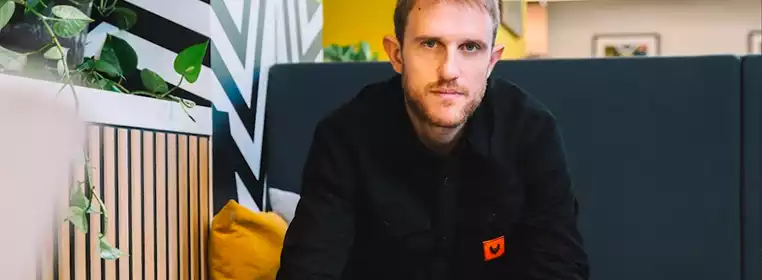
It doesn't get much better for esports organisations than the year that Team Vitality had in 2023. The French organisation dominated in its most competitive title CS:GO, winning a Major and four further offline tournaments throughout the year, and also set the record for the best Rocket League split ever, as the young roster blew away all opponents, winning five consecutive events (three Regionals, a Major, and Worlds).
But while all that success was happening behind the controllers and keyboards, Team Vitality has been steering themselves out of the esports winter, having revolutionised their approach to team building, going from superteams to scouting the next future world beaters, all the while being supported by some of the best brands around.
Now, Team Vitality has announced that they have retained fourteen of its partners for 2024, including the new additions of Magnum and Ben & Jerry's, as they continue to build an esports business model to be admired.
After announcing these new deals, GGRecon sat down with Team Vitality CEO and Co-Founder Nicolas "Nico" Maurer to discuss how their business model is thriving, changing the perception of the "esports winter", complexities with certain esports publishers, and what the future holds.
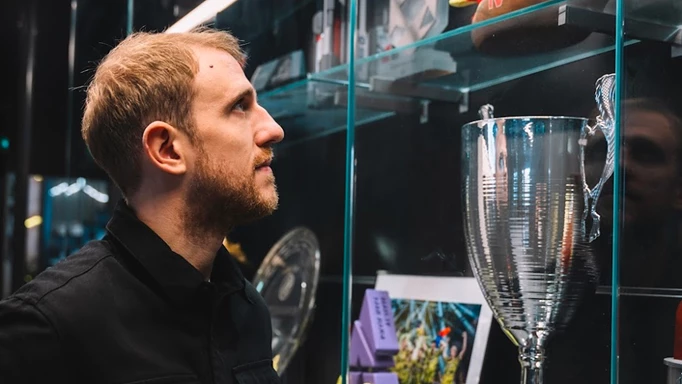
How important is it for you to get these deals over the line and continue relationships with sponsors year after year?
We are operating in an industry right now that is seeing a lot of changes, especially in the way that esports clubs' investments, and the way they access capital, are being reshaped to make them sustainable in the long run.
For that to work we need to make sure we continue to expand on the partnership revenue and expand their ways of generating revenue. Partnerships will still play a key role and that is especially true for Vitality and for any club that has a lot of ambition
For that, we need to spend that money, we cannot rely on external investment the way we collectively used to do, we have to generate the maximum revenue, so partnership is especially important in that regard.
For us, I would say that we invested early in a very strong partnership department. So not only to generate sales, but also with a partnership manager and a full department dedicated to handling the relationships with our partners, building the activation for them throughout the year, and making sure that we're providing the right value.
We need a dedicated team to do that, and I would say that we're doing that quite well. They're all renewing this year with their investment. We are obviously performing very well on the esports side, but we know that we can change. We will have good years, we will have bad years. That's the nature of esports. What should not change is the fact that we have this content relationship with the partner. We are creating meaningful activation content and events for them and for our fans at Vitality.
I would say these partnerships, overall, is a testament to the success we're having in the industry.
How did you combat the esports winter when income might not have been at its peak and viewership might not have been at its peak? How did you keep partners, who may or may not be esports-inclined, interested?
I would say that the phrase "esports winter" is first and foremost a matter of perception. Investors invested heavily in esports expecting short-term returns and they didn't get those returns. Many of them were disappointed and exited their position creating a situation where it's difficult to attract new investors.
Organisations cannot rely on the external influence of money. They have to be sustainable and change the way their business operates. That's esports winter.
It created a perception that esports is not doing well. And to an extent, it is true compared to expectations that we had a few years ago. But what is not true and what's super important to look at is that if you look with a bigger perspective, audiences are growing in a very steady way. Revenues are also growing in a very steady way - maybe not to the level we expected, that's true - but it's still growing.
If you remove the crazy expectations that the industry had five years ago, it's a business that is doing well. It's an industry that is doing well. Growing well. It's just that we collectively invested too much too early and expected quicker growth.
We have to combat the perception that esports is not doing well. That's what we are doing: Educating our partners, showing them simply the audience level, audience growth, viewership figures and the pandemic impact, where we had incredible but unsustainable growth.
If we take the right perspective and see the numbers of people following Vitality, of people watching the game, of people interacting with Vitality on their own, the reality of the numbers, the audience, and the viewership, we are doing quite well, and that's why the partners are here.
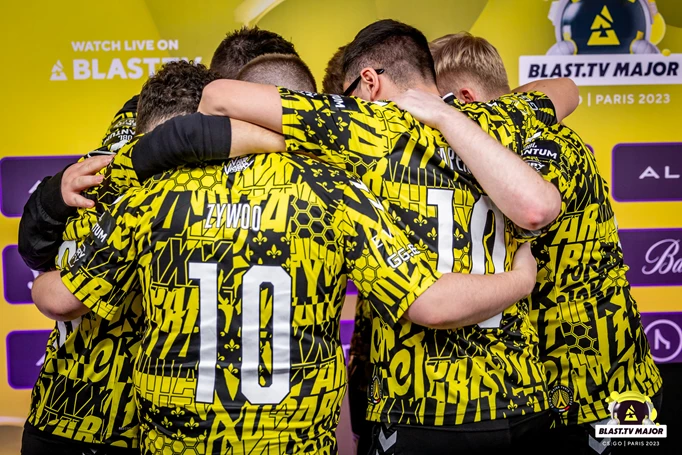
How has Vitality fared with collaborating with different partners in your different esports titles? Is there any, in particular, that you think has thrived over the last 12 months in one esport compared to another?
We love to have a partner who is working with us on all the titles of our portfolio, but we think it's more powerful if we can address different demographics. Specifically, you want to address one target audience and not another. So In the past, we used to have Fortnite. It would be perfect to say to brands, "Hey, you want to talk to the 14 to 18, go associate with our Fortnite team. If you want to talk to older audiences, go to CS:GO."
The answer to your question would be that any partner associated with our CS:GO team in 2023 had the best year of their life when we are clearly the best team in the world.
Given the transitions in some of your main esports tiles, with CS2 coming into play, franchising changes, and the new RLCS season under a different organiser, how have you done on those respective titles, dealing with partners and the communication?
Every publisher that you mentioned are working very differently. Valve for CS is quite unique. We almost never interact with them, but what they've built in terms of money distribution to teams through the major stickers is insane and unprecedented in the industry. I think that's by far the biggest money transfer from a publisher to teams, it's incredible. But after that, we have little communication with Valve. It's just that they will do things one way and we have to operate with the rules. That's Valve. Can be frustrating, but can be also extremely rewarding.
Riot, we have an excellent relationship as part of LEC and VCT, we have constant communication with them. It's really the epitome of the franchise model where we are we have a seat at the table and we have a real, continuous conversation with them. It's an excellent model.
And, Psyonix is a bit more difficult because they are a smaller publisher than the ones we mentioned. They are trying to do many things but with limited export resources. So, sometimes can be a bit frustrating. Ultimately, they are putting a great product on the market where it is organically generating a lot of interest and engagement, so that is working well.
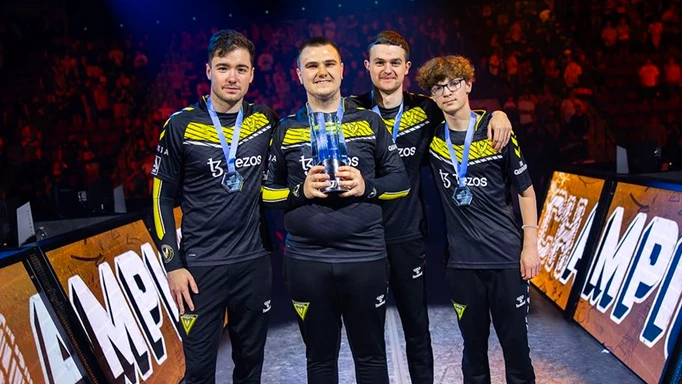
As the reigning Rocket League World Champions, what did you make of the new announcement and the lack of communication that came in front of that?
Adding to my previous point, even with their limited resources, they don't have that constant communication with teams. There is no culture of involving the teams in ramping up their announcements, giving us a heads up, asking for feedback, and all of that.
We're very much in a waiting position, where we are looking at what they will do with little control, and sometimes it's great, sometimes a bit less.
They seem to be pushing the amateur side of the scene, or the development side of the scene, more, compared to the biggest events and the elite professional teams and players, which obviously is not great for us. I love the development side, but I'm frustrated not to see more on the elite level of the game. It's a bit frustrating. I think it's a publisher that is constantly re-accessing its strategy and trying things out. Let's see how it goes.
But for us, my overall take is that it lacks a bit of content throughout the year. I would want to see more events and more presence of the tier-one scene at the forefront.
Over the last 12 months, and more so during this period now, do you think that this announcement affects organisations in attracting partnerships and sponsors for the likes of Team Vitality and others? Do you think that type of announcement would put partners off getting into Rocket League?
This is something we try to control and explain and educate our partners.
So when we work with partners in Riot's games, we have a yearly calendar set way in advance. We can plan for activations and content. Everything is easy to plan ahead of time. That's just the way Riot operates.
But working with Psyonix, it creates a ton of organizational and logistic complexities on a daily basis because you don't know what will happen, when that will happen, and not even a clear product that you will sell to your partner.
At the end of the day, we find a way to adapt and say, "Hey, that was the initial package. Obviously, there is now one less event, so we can compensate here and there, but you get roughly the same value." But when you're working with brands that also are very well organized internally, they want to plan ahead and it creates a ton of complexities for us to operate and for our teams on the ground to make things happen.
So it's difficult. We have to deal with that at the state of the industry, so we manage, but it's difficult.
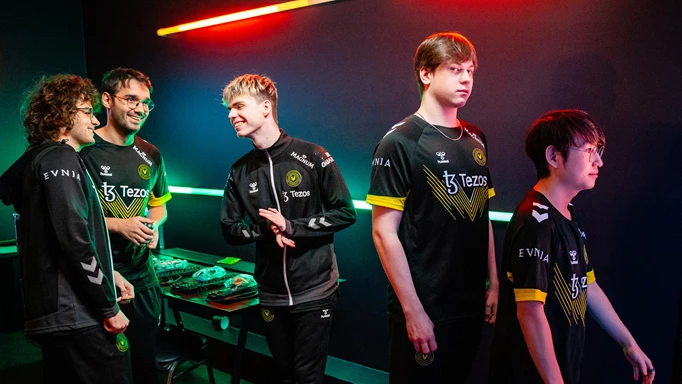
What are Team Vitality's goals for 2024, and how will you get there?
Replicating the success of our teams would be difficult. I mean, I wish that we would do that, but you know, it's esports and when you have such a fulfilling year, winning CSGO Major, winning Rocket League Worlds, saying that we expect to do the same thing is kind of crazy. But let's put that as a crazy dream.
I look forward to CS2 and replicating that success. We have a good chance to be as good as we were in 2023, because the CS:GO team is firing on all cylinders and the Rocket League lads still have incredible potential. So let's see.
The biggest improvement we want to see is seeing LEC team succeed in the long run. We didn't start very well, but we know it's a longer-term project with an incredible coaching staff that is building a winning culture, so it will take time. When the Spring and Summer Split come around I want to see our LEC team succeeding. We will have the League of Legends Worlds Quarters and Semis next year in France, in Paris, and that could be the icing on the cake for 2024, but let's see how that goes.
Finally, as you announce the renewals of your partners, a testament to the work that you've been doing for ten years: if you have another ten years of Team Vitality, What would be one dream partnership that you could announce?
I love to work with French sponsors, but also international brands in the way they do business.
One sector that never really worked with esports is Airlines. So, someday, if we have Air France on the sponsor list, it would be very nice.
That's just an example, obviously, a difficult question to answer because there are many industries that are not connected with esports yet and we want to see more, but why not have a French Airline?